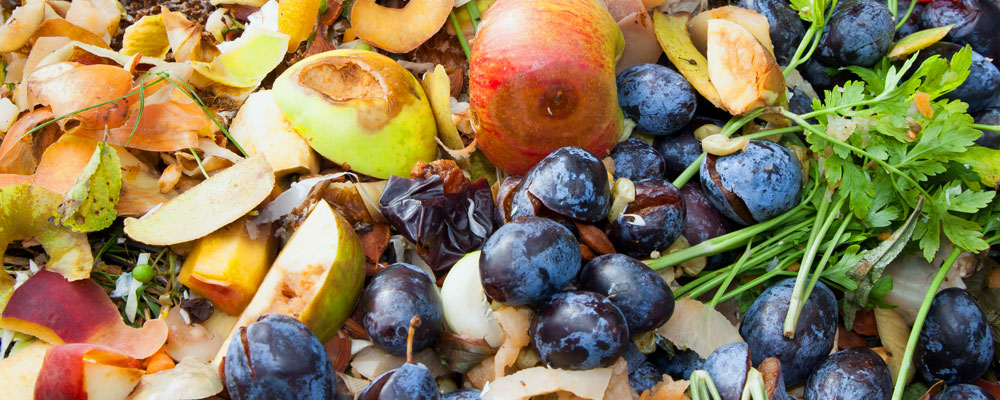A case study of a full-scale food waste digester failure and recovery was presented at the Value of Biogas West Conference in Vancouver. This case study demonstrates the need for balance in anaerobic digester feedstock as too much of the coveted FOG can be problematic.
In January of 2020, David Ellis of Azura Associates presented a case study at the Value of Biogas West Conference in Vancouver, British Columbia. This case study featured an Azura anaerobic digester troubleshooting assignment for a full-scale, food waste market digester that suffered a catastrophic process failure and its subsequent recovery. The Canadian Biogas Association (CBA) is the collective voice of the biogas industry. Founded in 2008, the CBA’s membership includes biogas system operators, farmers, municipalities, technology firms, project developers, consultants, finance and insurance firms, and other affiliate representatives. These members all have a focus on building the biogas sector in Canada.
The Value of Biogas (VOB) is the Canadian Biogas Association’s annual conference event, bringing together subject matter experts in the anaerobic digestion, biogas, and renewable natural gas (RNG) fields. Two such events are held each year: VOB-West in January is usually hosted in the Vancouver area, while the VOB-East is in Ontario or Quebec in March.
At the VOB-West conference Azura’s David Ellis shared with the audience information from a full-scale anaerobic digester failure. This food waste digester received and very high proportion of fats, oil, and grease (FOG) in the raw feedstock. This high-FOG digester suffered a complete failure, producing no biogas prior to our intervention.
Anaerobic digestion is a biological process whereby organic material, such as food waste, is broken down by microorganisms in a controlled, oxygen-free environment. This organic material can be in the form of 1) pre- and/or post consumer food waste, 2) fats, oil, and grease (FOG) from grease traps and restaurant waste, and 3) manure and other agricultural waste. Through anaerobic digestion, this organic waste material is broken down into biogas; a methane-rich renewable source of energy, and digestate; a valuable soil amendment. Among the waste materials mentioned, FOG is the most coveted because the fat is a very high-energy feedstock which can be converted to a large amount of biogas. Biogas derived from lipids is also higher in methane content compared biogas derived from carbohydrates or protein sources. Due to the higher methane content and the ease of handling FOG slurry feedstock, there is naturally a higher interest in digesting FOG compared to other waster materials. However, this case study demonstrates how there can be too much of a good thing.
FOG includes long-chain fatty acids (LCFAs), which are well known to inhibit several reactions during the anaerobic digestion process. Some researchers have found inhibitory effects of LCFA visible at concentrations as low as 50 mg/L, although Azura’s full-scale experience with operating digesters provides a different perspective. Indeed, it was the LCFAs which appeared to be a major contributor factor to inhibiting anaerobic digestion in this case.
This particular food waste digester in the case study suffered a failure in the Spring of 2018. The failure resulted in the operator emptying the digester contents and re-seeding the digester. Over the following months, the digester operations never achieved the robust, stable operation all digester operators strive for. By June 2019, the digester contained high levels of both volatile fatty acids (VFAs) and LCFAs. The digester was still producing biogas under these conditions, but by the beginning of July 2019 biogas production had completely ceased.
Azura’s involvement began with their proprietary evidence-based method to diagnose and resolve digester issues. After extensive sampling and testing, followed by careful digester operation based on ongoing laboratory testing, the digester biogas production recovered to 80% within 2 months. Full 100% of facility nameplate capacity was achieved two weeks later.
This case study illustrates that, like all biological processes, anaerobic digestion requires a specific and well-balanced feedstock blend to maintain equilibrium. To attend upcoming presentations at the Value of Biogas Conference, including the virtual Value of Biogas West and East 2021, please check the Canadian Biogas Association’s site: Canadian Biogas Association
Get Insights from the Bioprocess Experts Right to Your inbox
Sign up to the Discover Digesters Newsletter to access Azura’s best practices, field-tested advice, and insights into the anaerobic digestion & industrial wastewater treatment industries.
By submitting this form, you are consenting to receive marketing emails from: Azura Associates. You can revoke your consent to receive emails at any time by using the SafeUnsubscribe® link, found at the bottom of every email. Emails are serviced by Constant Contact.

